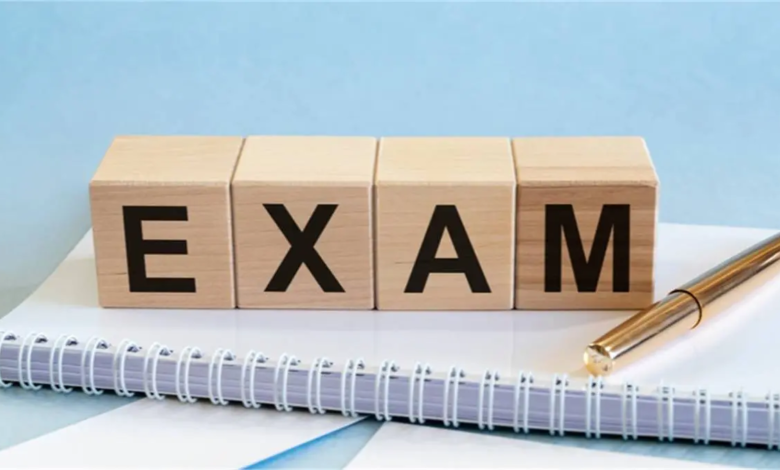Exam Season Importance of Self-Care During Exam Season
Prioritize self-care during the exam season to enhance focus, reduce stress, and improve performance. Learn effective strategies for success.

The pressures of the exam season can often feel overwhelming, with deadlines and expectations looming large. It’s easy to overlook personal well-being amidst the rush to cram for exams and finish assignments. However, neglecting self-care during this critical period can lead to burnout, fatigue, and decreased productivity. Incorporating self-care practices into your routine is not just a luxury—it’s a necessity for achieving academic success.
This article explores the essential role self-care plays during the exam season, offering practical tips and insights to help you stay balanced, focused, and mentally sharp. By making time for physical health, mental relaxation, and emotional resilience, you can transform your approach to exams and ensure optimal performance without compromising your well-being.
Understanding the Stress of Exam Season
Exam season often triggers stress due to the pressure to perform well. Recognizing this stress and its impact on your body and mind is the first step toward managing it effectively.
The Link Between Self-Care and Academic Performance
Self-care isn’t just about relaxation; it directly influences how well you can focus, process information, and retain knowledge during the exam season.
Creating a Balanced Study Schedule
Scheduling time for breaks and relaxation is crucial. Overloading yourself with continuous study sessions can reduce efficiency and lead to burnout.
Importance of Proper Nutrition
A healthy diet fuels your brain and body. Eating balanced meals during the exam season can boost energy levels and cognitive function.
The Role of Exercise in Self-Care
Physical activity helps reduce stress and improve concentration. Even short workouts or walks can make a significant difference during exams.
Prioritizing Sleep for Mental Clarity
Sacrificing sleep for extra study hours is counterproductive. Quality sleep enhances memory retention and ensures better performance on exam day.
Practicing Mindfulness and Meditation
Mindfulness techniques and meditation help calm your mind, making it easier to manage stress and maintain focus during challenging times.
Managing Social Interactions During Exam Season
Balancing social time with study schedules ensures that you don’t isolate yourself or become distracted from your goals.
Setting Realistic Goals
Unrealistic expectations can lead to stress and disappointment. Setting achievable targets keeps you motivated and prevents burnout.
Recognizing the Need for Study Breaks
Short breaks during study sessions refresh your mind and prevent fatigue, allowing you to maintain productivity throughout the day.
Maintaining a Clean and Organized Study Space
A clutter-free environment reduces distractions and creates a positive atmosphere for effective studying.
Managing Digital Distractions
Limiting screen time and using apps to block distracting websites can help you focus better during your study sessions.
Building a Support System
Having friends, family, or mentors to share concerns with can provide emotional support and encouragement during exam season.
Using Technology for Time Management
Digital tools like planners and reminders can help you organize tasks and stick to your schedule during the exam season.
Learning to Say No
Avoid overcommitting to tasks or social engagements during the exam season to focus on what truly matters.
Incorporating Relaxation Techniques
Relaxation practices like deep breathing or yoga can help you unwind and recharge your energy levels during stressful periods.
Staying Hydrated for Cognitive Performance
Ensuring that you drink an adequate amount of water throughout the day can significantly benefit your brain function, helping you stay alert and focused during long study sessions. Proper hydration is key not only for your cognitive abilities but also for maintaining optimal energy levels throughout the day. When you provide your body with the hydration it needs, you are supporting overall brain health and function. Water plays a crucial role in various physiological processes that are essential for cognitive performance. By keeping yourself well-hydrated, you are promoting efficient circulation and nutrient delivery to your brain, which is vital for sharp thinking and concentration. Moreover, staying hydrated can help prevent feelings of fatigue and sluggishness, allowing you to tackle your study workload with increased vigor and mental acuity. Developing a habit of drinking water consistently can make a noticeable difference in how you feel and perform, especially when studying for extended periods. So next time you sit down for a study session, make sure to have a refreshing glass of water within reach to enhance your brain function and sustain your energy levels.
Rewarding Yourself for Milestones
During exam season, it is essential to acknowledge and celebrate small victories, as these moments can significantly boost your motivation and help maintain a positive perspective. Exam preparation in exam season can often feel overwhelming, and focusing solely on the end goal may lead to stress and anxiety. By recognizing and appreciating the smaller achievements along the way, such as completing a challenging study session or understanding a difficult concept, you can create a sense of accomplishment that keeps you energized. Each small win serves as a reminder of your progress and resilience, encouraging you to keep pushing forward. Celebrating these milestones, no matter how minor they may seem, can provide a much-needed morale boost and help you approach your studies with a more optimistic mindset. This practice not only contributes to your overall well-being but can also influence your performance positively when it comes time to take the exams. Embracing this strategy ensures that you stay focused, motivated, and ready to tackle the challenges ahead with confidence.
Avoiding Cramming
Cramming for exams or tests often leads to heightened levels of stress and anxiety among students. This intense study method involves trying to learn a large amount of information in a short period, which can overwhelm the brain. As a result, many students find it difficult to remember the material once the test is over. In contrast, establishing consistent study habits proves to be a more effective approach for retaining information over time. By spreading out study sessions and regularly reviewing the material, learners can reinforce their understanding and improve their ability to recall information when needed. This steady and gradual approach not only reduces stress but also fosters deeper learning and better long-term retention of knowledge.
Reflecting on Your Progress
Take time to assess what you’ve achieved. Reflection helps you identify areas of improvement and boosts your confidence for exams.
Read More: The Importance of Self-Care During Exam Season
Conclusion
Self-care during the exam season is not an indulgence; it’s a vital strategy for academic success and personal well-being. By integrating self-care practices into your daily routine, you can manage stress, enhance focus, and optimize your study efforts. Effective self-care empowers you to approach exams with a clear mind and renewed energy, ensuring that you perform at your best.
As you navigate the challenges of the exam season, remember that balance is key. It’s essential to prioritize both your mental and physical health while maintaining consistent study habits. By doing so, you’ll not only excel academically but also cultivate skills that will serve you well beyond the classroom.
FAQs
1. Why is self-care important during exam season?
Self-care helps manage stress, improves focus, and enhances performance, ensuring a healthier and more productive exam experience.
2. How can I balance study and self-care?
Create a schedule that includes dedicated time for both studying and relaxation. Stick to the routine for better balance.
3. What are some quick self-care practices during exams?
Try deep breathing, a 10-minute walk, or a short mindfulness exercise to recharge your energy quickly.
4. How can exercise help during exam season?
Exercise reduces stress, boosts mood, and improves cognitive performance, making it an excellent self-care tool for exams.
5. Is sleep more important than studying during exams?
Yes, quality sleep is essential for memory retention and mental clarity, ensuring better results than cramming all night.







